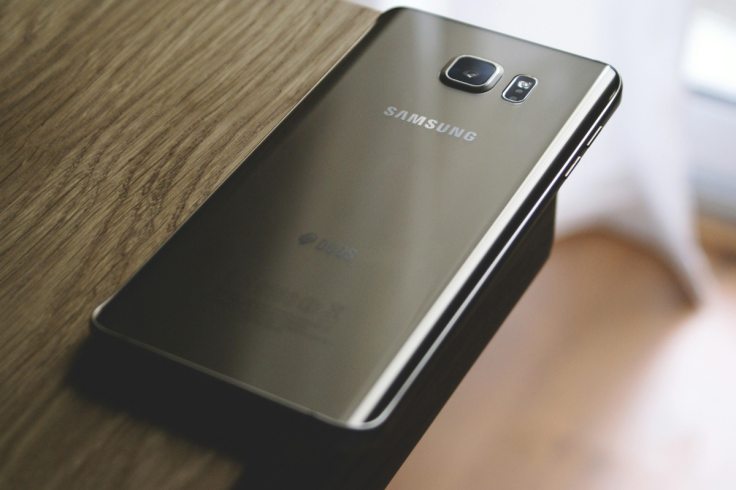Bombshell Glitch Exposed: Why Telstra's Samsung Phones Fail Triple Zero in Crisis?
Models like the Galaxy Note 5 (SM-N920I) and S7 Edge (SM-G935F) top the danger list

A catastrophic glitch has rocked Australia's telecommunications landscape, with Telstra revealing on 22 October 2025 that over 70 Samsung phone models fail to connect to Triple Zero emergency services during network outages, endangering lives in a nation still reeling from the Optus outage that claimed three lives last month.
This emergency call failure, traced to flawed network handover to Vodafone, has triggered urgent replacements for nearly 20,000 devices on Telstra's network alone. Consumer alerts and regulatory scrutiny are mounting amid fears of widespread mobile device replacement.
As Telstra, Optus, and TPG scramble to notify tens of thousands, the scandal underscores vulnerabilities in older Galaxy phones, amplifying calls for ACMA intervention in this Telstra-Samsung glitch saga.
The Glitch Unveiled: Lab Tests Expose Network Handover Horror
Telstra engineers, prompted by a rival operator's alert, conducted rigorous lab tests over nine days ending 22 October 2025. The results were dire: affected Samsung devices fail to 'camp on' Vodafone's network when Telstra and Optus signals vanish, cutting off Triple Zero access during emergencies.
The fault lies not with Vodafone, but with lapsed configuration in older Galaxy models from 2017 or earlier, breaching Australia's Emergency Service Call Determination, which mandates seamless emergency connectivity across carriers. TPG Telecom clarified: 'It is not a fault of the Vodafone network, but a limitation in how certain devices were originally configured to search for emergency connectivity.'
The revelation, detailed in Telstra's exchange post, echoes the September Optus outage—Australia's largest—that blocked hundreds from aid, breaching laws and fuelling probes. GadgetGuy Reviews highlighted the urgency on X: 'Some older Samsung phones won't have triple zero access, after recent Telstra testing revealed network handover issues,' urging immediate checks.
Some older Samsung phones won't have triple zero access, after recent Telstra testing revealed network handover issues.https://t.co/SoaxCY3AzL
— GadgetGuy Reviews (@GadgetGuySite) October 22, 2025
With consumer safety alerts now mandatory, this Telstra-Samsung glitch threatens to erode public trust in mobile networks.
Affected Devices: From Galaxy S6 to J5, a Roll Call of Risk
Eleven obsolete Samsung Galaxy models, spanning the S6 series to the 2017 J5, require outright replacement to restore emergency call functionality. Sixty newer variants await software patches to fix the handover flaw. Telstra has logged nearly 20,000 affected devices, with Optus and TPG bracing for similar tallies across Australia, potentially stranding users in remote or outage-prone zones.
Models like the Galaxy Note 5 (SM-N920I) and S7 Edge (SM-G935F) top the danger list, their outdated firmware unable to detect Vodafone's emergency fallback. ACCAN CEO Carol Bennett warned: 'We believe it's in the tens of thousands [with Optus and Telstra],' revising earlier estimates to spotlight the scale of this issue. Vulnerable Australians qualify for free replacements, but others must purchase a compliant device, according to 9News reports. Typical models cost between £250-£430 (AU$290-AU$830) for budget and mid-tier options.
Carrier Crackdown: Notifications, Blocks, and Samsung Silence
Telstra fired off the first salvos on 22 October 2025, emailing and texting owners with a stark ultimatum: upgrade within 28 days or lose network access. The move enforces ACMA-mandated blocks to ensure emergency call compliance. Optus mirrored the move, pledging 28-35-day grace periods before disconnection, while TPG offered subsidised fixes for Vodafone users, all under mounting regulatory pressure.
Optus stated: 'Impacted customers will start to receive SMS and email notifications from 22 October 2025.' Samsung's response? A vague assurance: 'Samsung and its carrier partners are working together to ensure all devices operate reliably in every emergency situation,' sidestepping responsibility for the glitch's origins.
The Brisbane Times noted Telstra's proactive stance in avoiding a repeat of the Optus outage, yet ACCAN criticised the burden on low-income users. As investigations loom, carriers are launching audits and vowing no repeat of September's deadly lapses.
© Copyright IBTimes 2025. All rights reserved.





















